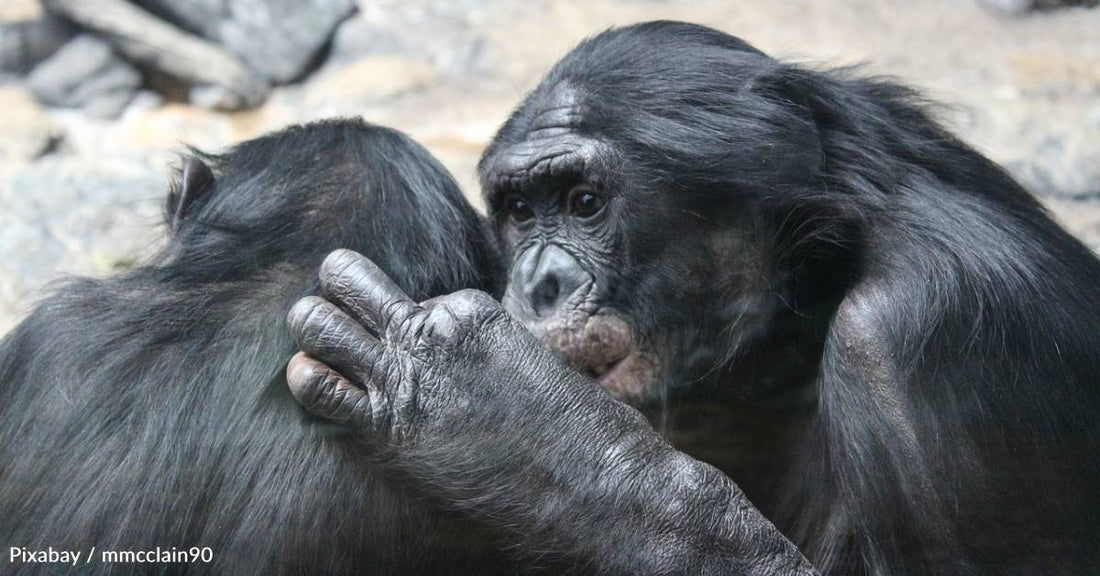Chimpanzees and Bonobos Recognize Friends Decades After They've Seen Them
Michelle Milliken
Chimpanzees and bonobos are our closest animal relatives, sharing more than 98% of our DNA. We’re thought to have split off from a common ancestor at least 6 million years ago, but we share common traits. Those include a high level of intelligence and communication through hand and limb gestures. A new study finds our long-term memory may be another commonality.
Research recently published in Proceedings of the National Academy of Sciences investigated whether or not bonobos and chimpanzees recognized old acquaintances that they hadn’t seen in years. Using high quality photos of other members of their species with whom they’d once lived, the researchers found evidence that the animals may remember those they hadn’t seen for more than 20 years. This shows that we may have both inherited this longer-term memory from that common ancestor.
Laura Simone Lewis, lead author and postdoctoral fellow in University of California Berkeley's psychology department, says, “We don't know exactly what that representation looks like, but we know that it lasts for years. This study is showing us not how different we are from other apes, but how similar we are to them and how similar they are to us."
The study involved 26 animals that had been separated from a family member or other group mate through relocation or possibly a death. They were spread across zoos in Japan and Europe. The researchers obtained photos of these former acquaintances as they would have appeared the last time they’d seen each other.
To see whether or not there was still recognition, the team set up a room that animals could enter voluntarily – and receive some juice if they chose to do so. There were computers and cameras set up to track their eye movement, which was observed while the animals were shown both a picture of a stranger and one of these old family members or “friends.”
The research showed that the animals looked at the picture of someone they knew much longer. One bonobo, Louise, appeared to recognize her sister and nephew that she hadn’t seen in more than 26 years. The only other animal that has demonstrated a similar long-term social memory in past research was the bottlenose dolphin, which a 2013 study found is able to recognize vocalizations from former acquaintances up to 20 years since they’d seen them.
Lewis says, “That, up until this point, has been the longest long-term social memory ever found in a nonhuman animal. What we're showing here is that chimps and bonobos may be able to remember that long — or longer."
The researchers write that these findings suggest that long-term social memory played a role in the evolution of human culture and complex cooperative relationships.
One of the animals involved in this study – the bonobo – also has a unique way of relating to other members of its species, including solving conflicts with love and living in a matriarchal society. You can learn more about them here!




